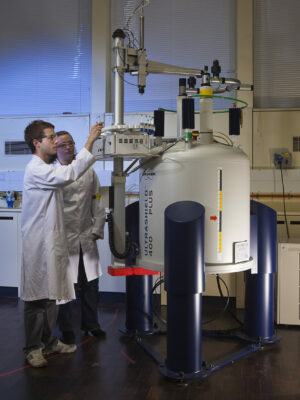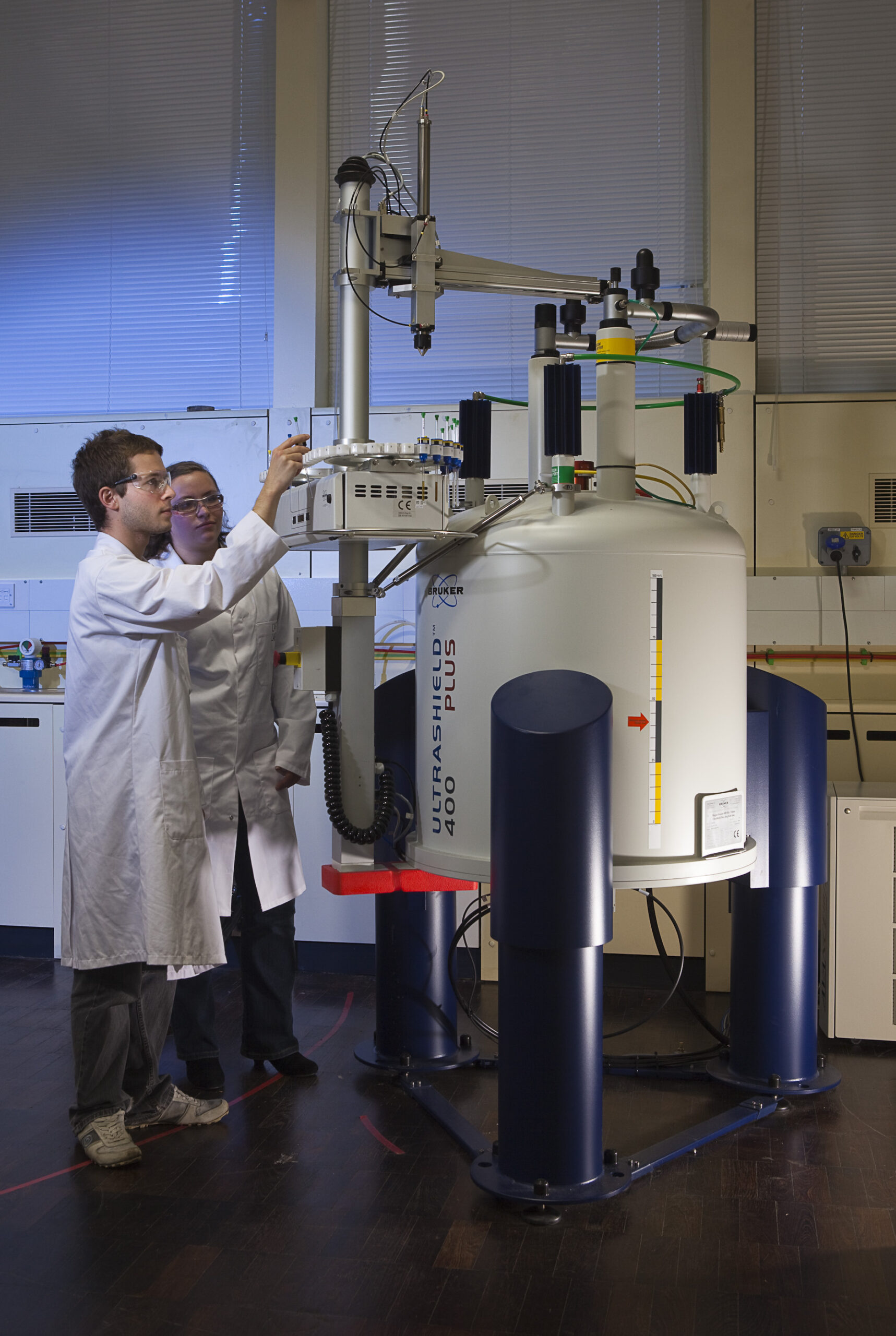
The Nano400 is a two-channel NMR instrument running ICON NMR 4.2 under TOPSPIN 3.6. It incorporates a 9.39 T Ultrashield Plus Long Hold Time Magnet and is equipped with a 5mm indirect observation z-gradient inverse (1H/13C)- BBI probe and a 60-position BACS sample changer.
Of the two Open Access NMR instruments, the Nano400 is superior for performing proton-detecting experiments, as the probe for this instrument has optimised sensitivity for protons. Therefore, if you have a limited amount of sample (see Sample Requirements for Experiments in ICONNMR for the minimum amount of sample which is required in order for each of the above experiments to succeed), you will get much better results by running your proton-detected 2D-NMR experiments (such as COSY, NOESY, edited-HSQC, and HMBC) on the Nano400, in preference to the Bruker HD 400 MHz. Conversely, 1D-NMR experiments involving direct observation of heteronucleii (such as the 1D-experiments 13C, DEPTQ and DEPT-135) will give better results on the Bruker HD 400 MHz, if only a small amount of sample is available. Very small amounts of sample, which cannot be run in a reasonable time on either of the Open Access NMR instruments, can be submitted to the Internal NMR Service (either the Bruker AV 500 MHz or the AV700 instrument) for acquisition by the NMR staff.
Useful information
All users must have received training in use of the open access NMR instruments (provided by the NMR Staff).
Contact
For more information about this instrument and its availability contact:

